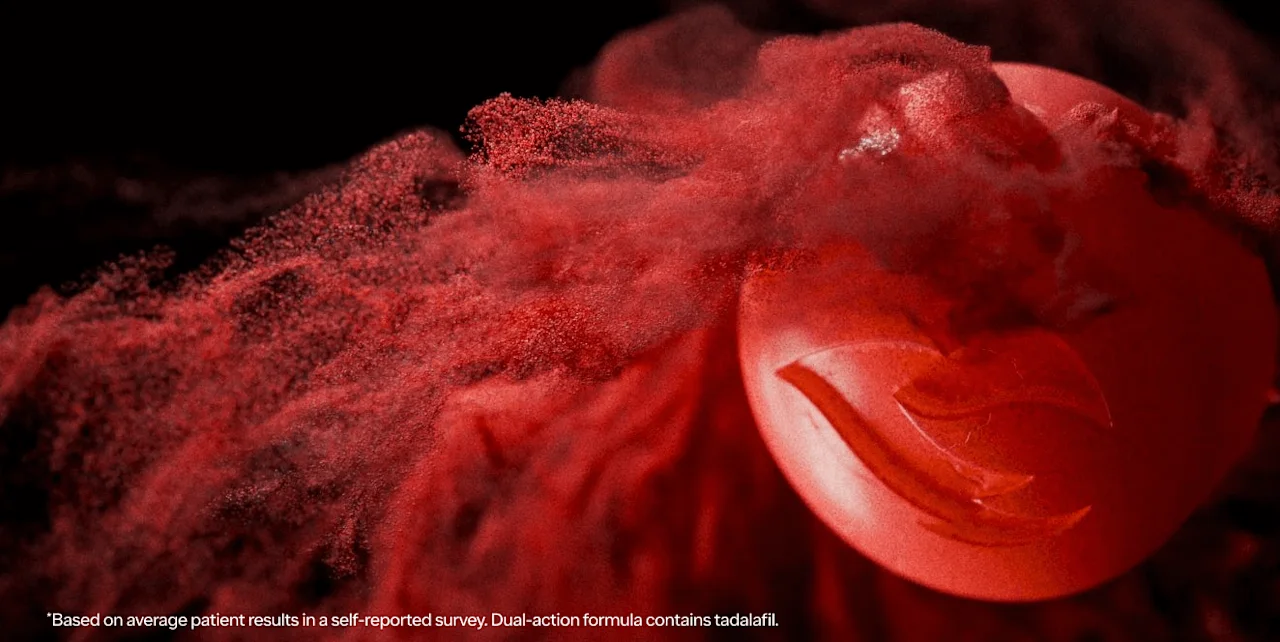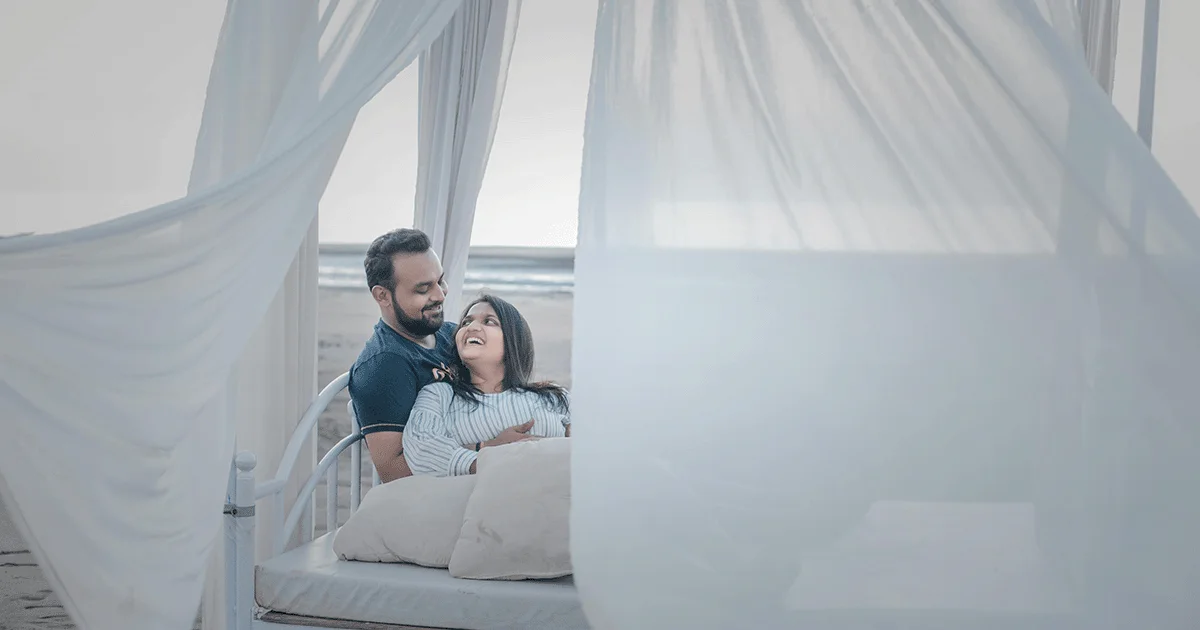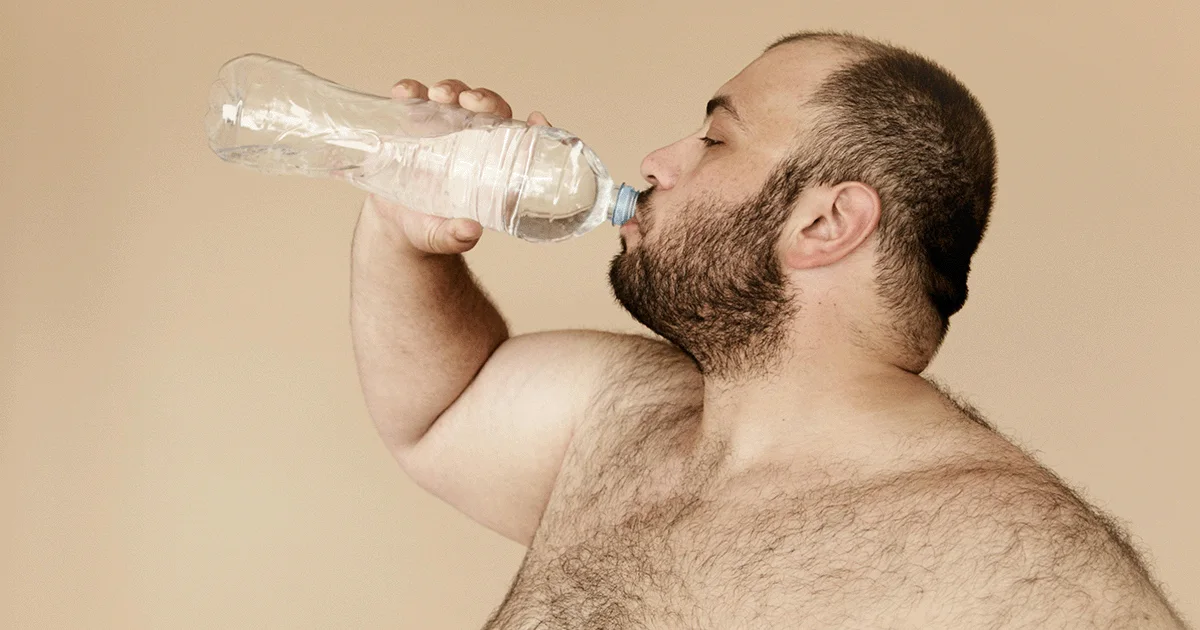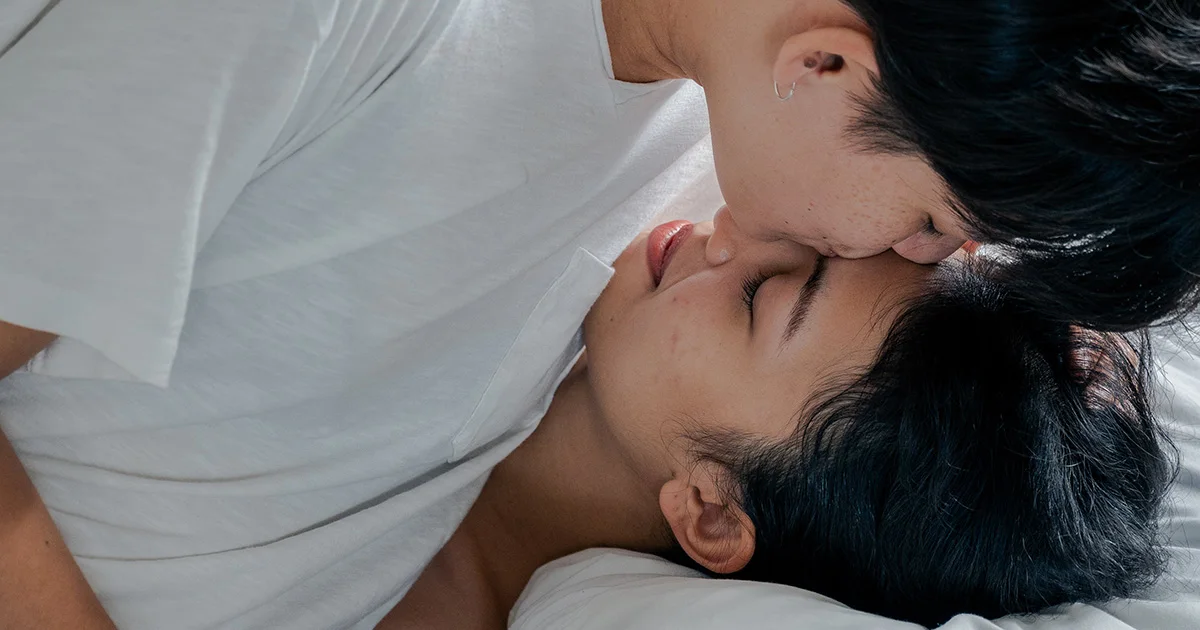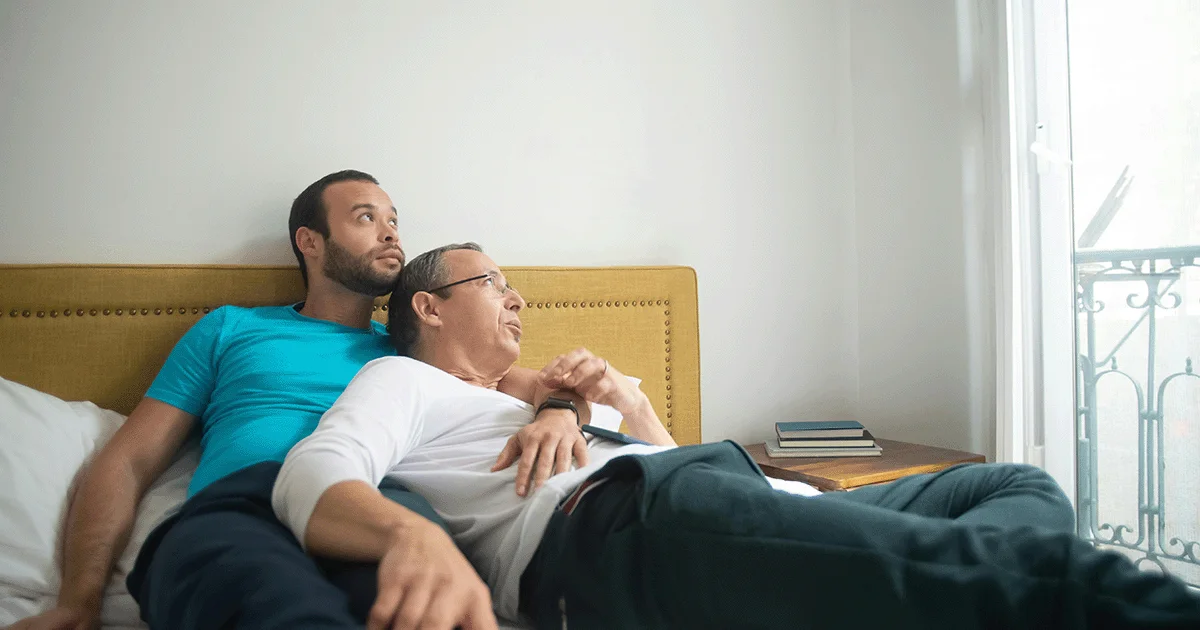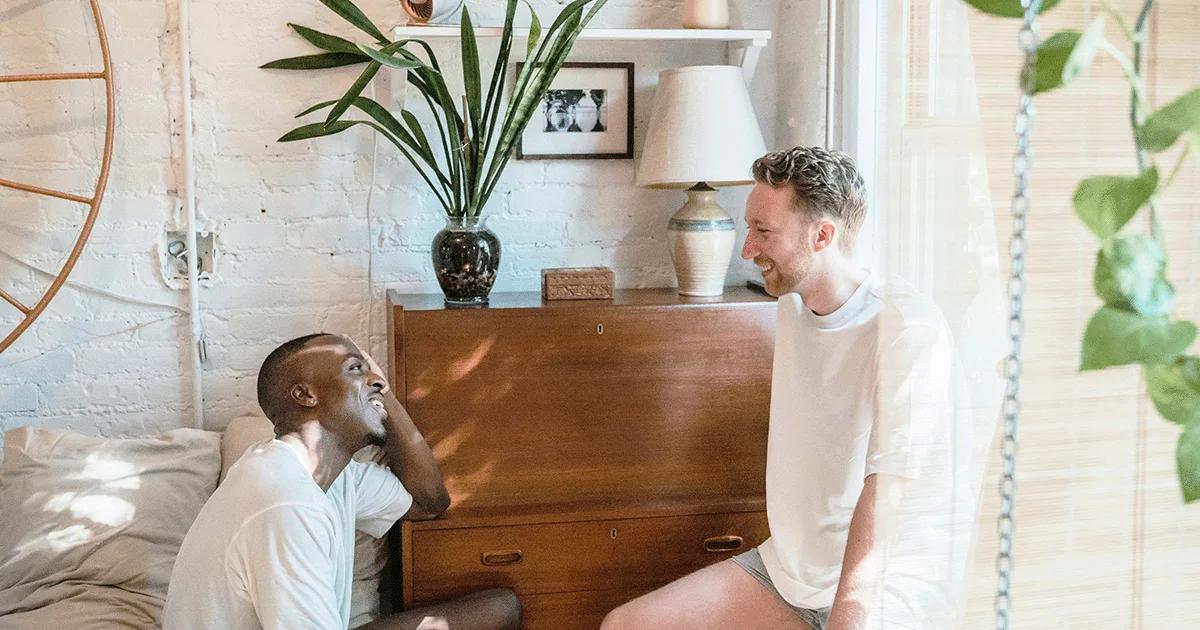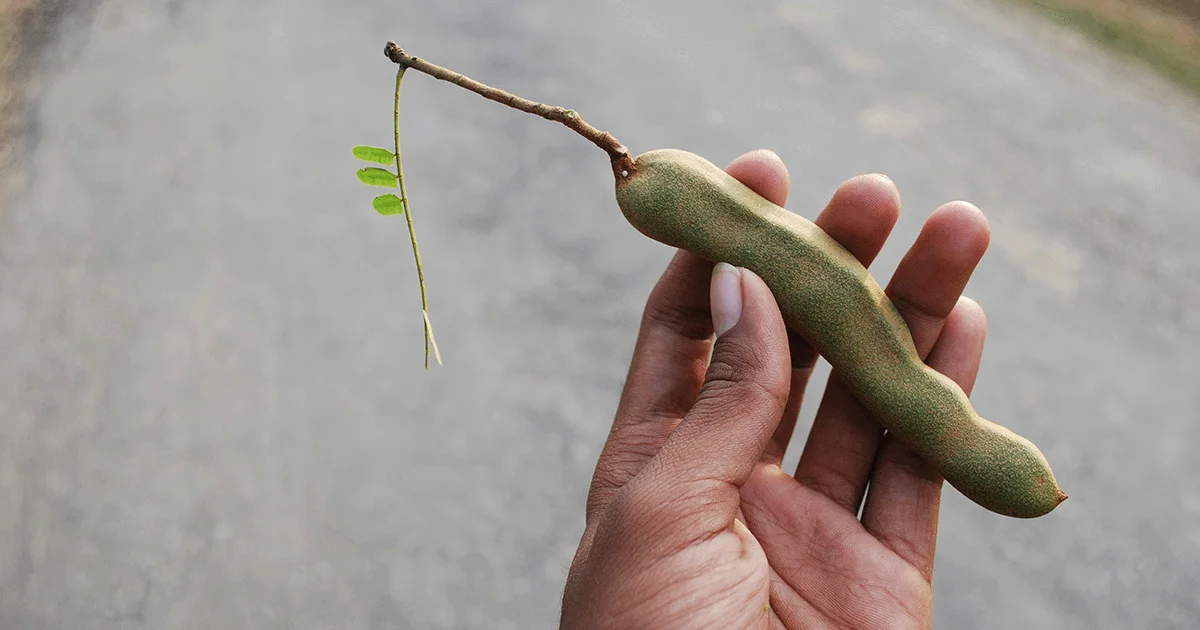Key takeaways
Sex shouldn’t hurt, but testicular pain after sex may be more common than you think, and can happen due to a variety of causes.
Testicle pain after sex can stem from minor irritation, infections, or underlying medical conditions.
Some causes are benign and others are more serious. Knowing the difference is crucial for being able to receive the right treatment. If you are unsure, seek guidance from your healthcare provider.
Here's what we'll cover
Here's what we'll cover
Here's what we'll cover
Key takeaways
Sex shouldn’t hurt, but testicular pain after sex may be more common than you think, and can happen due to a variety of causes.
Testicle pain after sex can stem from minor irritation, infections, or underlying medical conditions.
Some causes are benign and others are more serious. Knowing the difference is crucial for being able to receive the right treatment. If you are unsure, seek guidance from your healthcare provider.
Sex should be pleasurable. If you’re consistently experiencing testicular pain after sex, it can make intimacy stressful and, well, a lot less sexy. So, if you find yourself wondering, “Why do my balls hurt after sex?” we might have answers.
The testicles are very sensitive organs with thousands of nerve endings and delicate surrounding structures. As a result, even mild irritation can sometimes cause discomfort, including pain after sex.
Read on to learn some common possible reasons your testicles hurt after sex, how to relieve the discomfort, and when to see a healthcare professional.
Why do my testicles hurt after sex?
Testicular pain after sex and/or ejaculation can be caused by a lot of different things, ranging from minor and temporary causes to more serious ones.
Here are 10 possible reasons your balls hurt after sex.
1. Injury during sex
The act of sex itself can lead to “minor repeated trauma,” says Philip Werthman, MD, a board-certified urologist and men’s health specialist. This is especially the case if sex is going on for a long time, is very rough, or involves high-impact positions where the testicles get compressed or bumped repeatedly. In these instances, testicle pain may occur during or after the encounter.
2. Physical trauma
If you’ve recently hurt your testicles, or even if you just sat on them the wrong way, it’s possible the inflammation from the injury could linger and flare up during or after sex, says Justin Dubin, MD, a board-certified urologist and men’s health specialist. Your balls hurt after sex in these cases since the activity irritates the already inflamed and sensitive tissue.
3. Prostatitis
Prostatitis occurs when the prostate gland becomes inflamed, typically due to an infection. Since the prostate is in close proximity to the testicles, prostatitis can cause testicle pain after sex or after ejaculation, Dr. Dubin says. Prostatitis sometimes requires treatment with antibiotics.
4. Epididymitis
Epididymitis is inflammation of the epididymis, a small organ that sits atop/behind the testicles and stores sperm, Dr. Werthman says. This organ is very sensitive and prone to infections and trauma from injury, he adds. Sexually transmitted infections (STIs) are a common cause of epididymitis in young men. If you have epididymitis, you may experience pain and swelling that comes on gradually, often on one side. This pain and swelling can be further irritated by sexual activity. You may need antibiotics to treat this condition and should see a healthcare provider for proper diagnosis and treatment.
5. Orchitis
Orchitis refers to inflammation of the testicles, typically caused by an infection, Dr. Werthman says. This could be due to a bacterial infection, such as an STI, or even a virus, he adds. Again, this swelling and pain can be exacerbated by the physical activity of sex. In some cases, you may need antibiotics for this condition and should be seen by a healthcare provider.
6. Varicocele
A varicocele is similar to enlarged varicose veins, but located in the scrotum, Dr. Werthman says. They may cause a dull, achy pain or a sensation of heaviness. If you have a varicocele, you may see or feel lumpiness above the testicle. Impact on the testicles from sex can further aggravate this inflammation and pain. After a physical examination and diagnosis, your healthcare provider may recommend an in-office procedure — or, in some cases, a surgical procedure — to treat the varicocele if you are experiencing pain or are having fertility concerns.
7. Hydrocele
“A hydrocele is a fluid buildup in the layers that protect the testicle. Most men have a little bit of fluid there. Usually they're not painful, unless they get very large,” Dr. Werthman says. In cases of larger hydroceles, sex or general pressure on the area may increase discomfort. Surgical repair can sometimes be offered when the hydroceles are large or causing significant discomfort.
8. Pelvic floor dysfunction
Pelvic floor dysfunction is an often overlooked potential cause of testicle pain after sex, Dr. Dubin says. Your pelvic floor muscles (referring to the muscles surrounding the reproductive organs, bladder, and rectum) play a large role in your sexual health. If these muscles are too tight or not coordinating properly, this can cause pelvic floor dysfunction, which may lead to pain that is worsened with sex, Dr. Dubin says. There are physical therapists that specialize in pelvic floor issues that could help you address these symptoms.
9. Testicular torsion
This is an acute medical emergency where one testicle twists around the spermatic cord, cutting off the blood supply to the testicle. A testicular torsion is extremely painful; Dr. Dubin says it’s typically a 10 out of 10 level pain, and there will be no doubt that it’s an emergency. On top of the pain, you might also notice symptoms such as one testicle sitting higher than usual, nausea, or vomiting. Although sex is not a common cause for testicular torsion to occur, it’s possible.
If you suspect torsion, seek emergency care immediately because you will need an emergent procedure.
10. Epididymal hypertension, AKA “blue balls”
“Blue balls” is a potential reason for testicular pain after sex if the encounter didn’t culminate in an orgasm and/or ejaculation. If you have an erection and are aroused for a long time, there’s increased blood flow and blood pressure to the area that can cause discomfort if there isn’t a release.
So, if you have sex but don’t ejaculate, you may experience blue balls, but this pain is transient, Dr. Dubin says. Pain relief usually comes within minutes to hours, either on its own or after ejaculation.
Does erectile dysfunction cause testicular pain?
Erectile dysfunction (ED) in and of itself does not cause testicular pain. However, having testicle pain might make it harder to get hard. “If someone's having pain in that area and they're stressed, it's hard to get an erection,” Dr Werthman says.
Or, if someone is having sex and then loses their erection due to ED, and they aren’t able to orgasm, this could lead to testicle pain in the form of “blue balls.”
Home remedies for testicular pain
In many cases, mild cases of testicle pain after sex may improve with simple home care, using methods similar to those you might use for many other types of injuries.
Rest
Sometimes, the best remedy is to give your body (in this case, your balls) a break. Avoid activities that could further strain the testicles, including sex, until the pain subsides.
Ice
Back to basics, Dr. Dubin recommends icing the area to reduce inflammation and alleviate pain. “I always recommend a bag of frozen peas or blueberries. They're very small, so they can conform to your genitals,” he says. Don’t put ice directly on the skin, but rather, put it over your clothes or wrap it in a thin towel.
Elevation
Elevation helps with injuries because it allows for the drainage of excess fluid out of the area. Dr. Werthman suggests lying with a rolled towel under your scrotum to elevate your testicles.
Over-the-counter meds
OTC medications, specifically NSAIDs (nonsteroidal anti-inflammatory drugs), can help reduce swelling and pain. Ibuprofen (Motrin and Advil) or naproxen sodium (Aleve) are common OTC NSAIDs. Certain medical conditions like kidney disease or gastrointestinal issues could be a reason to avoid taking NSAIDs, so speak with your healthcare provider if you are unsure whether they are safe for you.
When to see a healthcare provider
If you are continuously experiencing pain after sex or outside of sex, it’s important to see your healthcare provider. Dr. Dubin says you should see a healthcare provider if:
You see a consistent pattern with testicle pain after sex.
There’s swelling of your testicles.
There’s a change in the size/shape of your testicles.
You have sudden, severe pain.
It’s always better to err on the side of caution when it comes to testicle pain, so don’t hesitate to see your provider ASAP.
Diagnosing testicular pain after sex
Your provider will determine the cause of testicular pain by combining your medical history, a physical examination, and potentially imaging or laboratory tests. Here’s what may be included in the diagnostic process.
General exam: During a general exam, your provider will take your history and ask about your pain, recent sexual activity, injuries, and any associated symptoms. There will also be a physical exam, where your provider will examine your testicles and palpate them to check for any swelling, abnormalities, masses, or tenderness to the touch, Dr. Dubin says. This can help your healthcare provider gain a better understanding of what's going on.
Digital rectal exam: During a rectal exam, your provider will insert a gloved finger into your rectum to feel your prostate to assess for tenderness or swelling.
Urinalysis: If your healthcare provider suspects an infection, they will likely ask for a urine sample to assess for the presence of bacteria.
Ultrasound: A scrotal ultrasound may sometimes be performed. This non-invasive test provides images of the testicles and surrounding structures and assesses blood flow, helping identify testicular torsion, varicocele, or other abnormalities.
Treating testicular pain after sex
Treatment for testicle pain after sex will depend on the cause, which is why an accurate diagnosis from a healthcare professional is crucial. Here are several treatment options.
1. Antibiotics
If your pain is related to an infection, such as an STI, your healthcare provider will prescribe an antibiotic. Once the antibiotic course is complete, the infection should clear. Sometimes, your sexual partner may need to be treated as well.
2. Anti-inflammatory medication
Anti-inflammatory medications, whether over-the-counter or prescription, can help relieve swelling and pain. Over-the-counter NSAIDs such as ibuprofen are good in mild cases. In other cases, Dr Dubin says he’ll prescribe an NSAID called Celebrex for stronger relief. Speak with your healthcare provider to make sure NSAIDs are right for you.
3. Pelvic floor physical therapy
If your pain is linked to pelvic floor dysfunction, it’s important to seek pelvic floor physical therapy, Dr. Dubin says. A pelvic floor physical therapist will assess your muscles and develop a personalized treatment plan tailored to your specific needs, which may include targeted exercises, stretches, and relaxation techniques.
4. Spermatic cord block
If tests are negative and testicle pain after sex persists despite attempting other treatments, Dr. Dubin says a provider can administer a spermatic cord block, which is a nerve block injection that numbs the spermatic cord. This can provide relief in chronic cases of testicular pain.
5. Surgery
In certain cases, such as with testicular torsion, surgery may be necessary. If you’re diagnosed with testicular torsion, time is of the essence and it’s crucial to get the surgery quickly. Otherwise, the testicle can die if it’s without blood for too long, Dr. Werthman says.
Surgery can also treat conditions like varicocele or large hydroceles if they’re causing significant pain.
Preventing testicular pain after sex
While not all causes are totally preventable, certain habits can reduce your risk.
Use condoms: Using condoms is a great way to practice safer sex and reduce your risk of getting an STI, a common cause of testicle pain after sex. This is especially important if you’re having sex with multiple partners, Dr. Dubin says. Condom use helps reduce your risk of STI-related testicle pain,
Avoid rough sex: Certain positions or intensities that put pressure on the scrotum can cause lingering pain. Pay attention to positions or intensities that leave you in pain and adjust accordingly.
Manage underlying conditions: Once diagnosed, treat conditions like prostatitis, hydrocele, or varicocele early to avoid ongoing discomfort and further irritation.
Stay on top of health screenings: Regular checkups with your healthcare provider can help catch conditions (like varicocele or hydrocele) early.
Listen to your body: If something feels off during sex or exercise, slow down or stop before it leads to pain.
Bottom line
Testicular pain after sex and testicular pain after ejaculation can feel alarming, but in many cases, it’s temporary or linked to minor, treatable issues. Still, because some causes are serious, it’s important to pay attention to your symptoms and know when to seek care. Here are the key points to remember:
Testicular pain has many causes: From physical irritation to blue balls to infections, there are various unique causes of testicle pain after sex. An accurate diagnosis is key.
Home remedies can help: Rest, ice, elevation, and over-the-counter anti-inflammatories may relieve mild discomfort.
Medical treatment may be necessary: Depending on the underlying issue, you might need antibiotics, physical therapy, surgery, or another type of specialized treatment.
Don’t ignore red flags: Sudden, severe pain or changes in the testicle’s position or size warrant immediate emergency care.
Frequently asked questions (FAQs)
Why do my balls hurt when I edge?
When you engage in edging and purposely delay ejaculation, your muscles are getting prepared for ejaculation, and pressure builds up with no release, resulting in that achy, blue balls pain.
Why does my left testicle hurt when I ejaculate?
One-sided testicle pain could be related to a condition like varicocele, since this most commonly occurs on the left testicle, Dr. Werthman says. One-sided pain could also be related to injury during sex or epididymitis located on that side.
Why does my right testicle hurt when I ejaculate?
Pain isolated to the right testicle may point to epididymitis, an injury, or, less commonly, a varicocele on that side. It all depends on the situation and a physical exam with a healthcare provider would be needed to better understand the cause.
Is it normal for your balls to be sore after sex?
Occasional mild soreness can happen, especially if you’re having rough sex, but persistent or severe pain is not normal and should be assessed by a healthcare provider.
Can ejaculating too much cause testicular pain?
“Ejaculating too much, just like anything else, can cause discomfort [when] it's overused,” Dr. Werthman says. “The muscles contract with ejaculation, and you can strain those muscles, which can cause pain in the testicle area.”
Why do I have pain after ejaculating twice?
If you are ejaculating back-to-back, your muscles may be overused, which can make your balls hurt after cumming twice.
DISCLAIMER
If you have any medical questions or concerns, please talk to your healthcare provider. The articles on Health Guide are underpinned by peer-reviewed research and information drawn from medical societies and governmental agencies. However, they are not a substitute for professional medical advice, diagnosis, or treatment.
References
Leslie, S. W., Sajjad, H., & Siref, L. E. (2023). Varicocele. StatPearls. Retrieved on Sep. 22, 2025 from https://www.ncbi.nlm.nih.gov/books/NBK448113/
Rupp, T. J. & Leslie, S. W. (2023). Epididymitis. StatPearls. Retrieved on Sep. 22, 2025 from https://www.ncbi.nlm.nih.gov/books/NBK430814/
Schick, M. A. & Sternard, B. T. (2023). Testicular torsion. StatPearls. Retrieved on Sep. 22, 2025 from https://www.ncbi.nlm.nih.gov/books/NBK448199/



